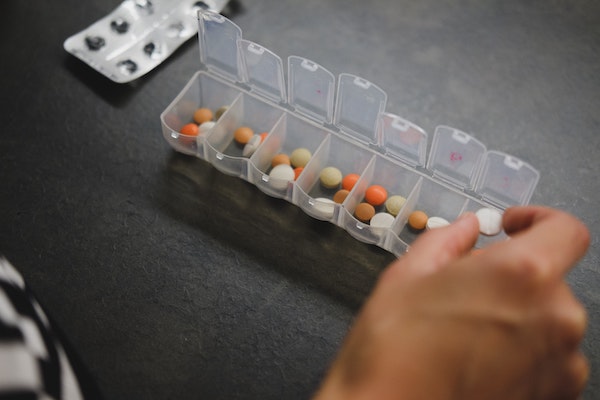


Vitamin B and C tablets, and certain multivitamin capsules, are to be removed from the list of medications available for free due to their lack of therapeutic benefit as part of changes that could save the Government up to £54,000 a year.
The move comes following recommendations from the Pharmaceutical Benefit Advisory Committee (PBAC) and will be implemented from 1 October 2021 unless it emerges it would be detrimental.
Vitamin B tablets are often prescribed to individuals who are alcohol-dependent, while Vitamin C is often given to those with an iron deficiency.
“These products have been included in the List for many years, probably since the List was first created, but have little, if any, therapeutic benefit,” the committee noted in a report following a review of 'low priority prescribing' products.
The committee noted that prescribing and dispensing these products came at a cost and consumed resources, while also potentially “distract[ng]” patients from following the “prescribed treatments that do make a difference to the length and quality of their lives”.

Pictured: The vitamins will be removed from the Prescribed List from 1 October 2021 unless it emerges it would be detrimental.
Vitamin B compound tablets are prescribed for patients who are alcohol-dependent, “despite a lack of evidence of its value”, the Committee noted, explaining that current guidelines recommend thiamine tablets to treat and prevent thiamine deficiency in such patients.
In the last year, 7,400 prescriptions for vitamin B compound/compound strong tablets were issued at a cost of £27,000. PBAC said that if 75% of these prescriptions are discontinued, with the remainder switched to similarly priced thiamine, up to £20,000 could be saved every year.
Meanwhile, vitamin C tablets are commonly prescribed with iron tablets, as vitamin C has been shown to increase the absorption of iron. However, PBAC said there is no evidence that vitamin C tablets improve the treatment of anaemia as vitamin C can be obtained from an individual's diet, " for example by taking iron tablets with orange juice."
There were 1,600 prescriptions for vitamin C in the past 12 months, amounting to total a cost of £37,000.
Multivitamin capsules called 'Vitamins BPC' were also recommended for removal from the prescription list. PBAC noted the amounts provided are mainly less than required amounts and less than the amounts provided by many over-the-counter products. Removing them from the prescribed list would save over £2,300 a year. Three branded multivitamin products, which are prescribed for specific populations of patients, will remain on the list.

Pictured: A number of additions have also been recommended.
Meanwhile, the Committee has suggested adding a number of items to the list, including 400units capsules of vitamin D.
Vitamin D is recommended in public health guidelines for healthy bones and muscles and a daily supplement of vitamin D 400 units should be taken by everyone during winter months when there is too little sun for people to make enough vitamin D from sunlight on the skin.
While the public are encouraged to buy their own vitamin D supplement, GPs make prescriptions for those in residential care, with a low income, or in the belief that a prescription will encourage patients to engage with advice to take a supplement.
The Prescribed List already included a number of vitamin D supplements, the majority of which were high-strength products. The lowest strength on the List contains 800units and, in the past 12 months, nearly 9,000 prescriptions have been dispensed for this product at a net cost of over £55,000.
PBAC said that adding 400units capsules to the prescription list would provide the recommended daily dose at less expense than the 800units product. “If all prescriptions for vitamin D 800units were switched to 400units, total expenditure would be reduced by around £40,000 per annum.”
According to the NHS website, there have been reports of vitamin D reducing the risk of covid-19. During the winter, the NHS provided free vitamin D supplements to all those deemed at high risk from the virus.
Other recommended additions include Melatonin modified-release tablets as an alternative to sedating hypnotics, a beta blocker and painkiller patches.
Overall, it is believed the changes could save the Social Security Department up to £54,000 a year.
Comments
Comments on this story express the views of the commentator only, not Bailiwick Publishing. We are unable to guarantee the accuracy of any of those comments.